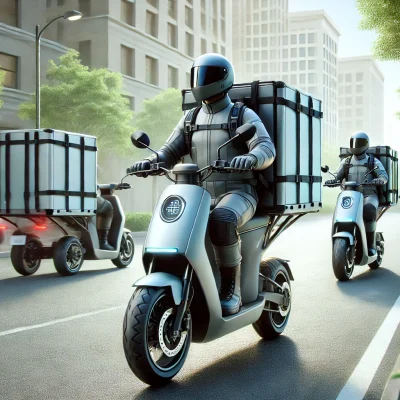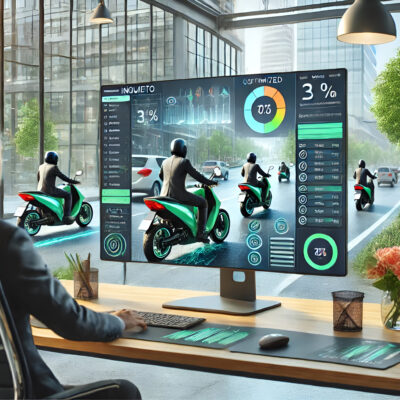When talking about transport pollution, we frequently turn our minds to the gases or emissions that combustion engines spread into the environment. A problem that has undoubtedly been exacerbated by the increase in last mile services. Services that put in motion hundreds or thousands of vehicles every day in cities all around the world. To tackle this issue, new alternatives for electric, innovative and sustainable vehicles have come onto the scene. But also to solve another big headache, particularly in urban areas: noise.
Noise pollution becomes as problematic as pollution owing to harmful gas emissions since it also represents a serious risk to human health and the environment. This type of pollution, caused by excessive sounds in the environment, is largely to blame for disorders such as stress, hearing loss or insomnia. And the accumulation of vehicles in the streets or highways of a city only serves to intensify this noise.
The World Health Organisation (WHO) asserts that noise pollution is the second most harmful environmental factor for health in Europe, only preceded by poor air quality. And the thing is, noise has practically the same impact on health as chemical air pollution. What’s more, as we have said, it does not only affect people’s health. Noise pollution has a negative impact on the surrounding fauna too. And many animals depend on sound for everything from communicating to finding food.
The reduction in noise pollution, the last mile challenge
Achieving sustainable mobility is the goal that the last mile has to set. And, with this in mind, we need to take into account both the polluting gases that our vehicle fleets emit as well as the noise they cause. It is essential to understand that this process whereby our products reach end consumers is a major source of noise pollution, especially in urban areas. So, businesses need to seek technological solutions to reduce the noise pollution caused by their vehicle fleets with a view to improving people’s quality of life and reducing the negative environmental impact.
Electric vehicles and noise pollution
The most efficient, sustainable solution to avoid contributing to this type of pollution in the delivery sector, as well as the emission of harmful gases, is to commit to vehicles such as three-wheeler cargo bikes or bicycles with assisted pedalling or electric vehicles in general. These are silent vehicles which work by means of internal combustion and which greatly reduce noise in urban and interurban areas. Without the sound of combustion, noise pollution disappears.
What’s more, so that the absence of noise does not cause any harm, this type of transport can incorporate advanced technologies in the form of alerts to warn pedestrians of their presence, particularly people with visual disabilities. In this way, electric vehicles are sustainable and safe for everyone.
Technologies to reduce noise
There are many options to further reduce the noise pollution caused by vehicles. For example, low-noise tyres, soundproofing systems for vehicle bodyworks… But there are also many types of vehicles that do not generate any type of noise pollution. Forms of transport which are perfectly compatible with last mile logistics services such as three-wheeler cargo bikes or bicycles with assisted pedalling. Not to mention 100% electric tricycles, quadricycles, motorbikes or vans.
Opt for the vehicles that best suit your business, your products and your routes from the wide variety that can be found on the market today. Choose a sustainable vehicle and begin to reap the benefits of offering a service endowed with quality but which is simultaneously sustainable and socially responsible.





